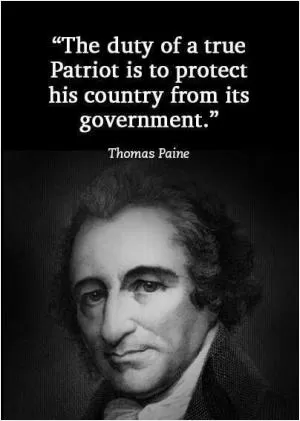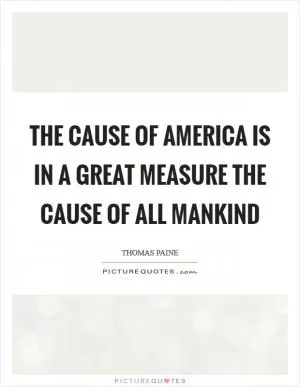I prefer peace. But if trouble must come, let it come in my time, so that my children can live in peace

I prefer peace. But if trouble must come, let it come in my time, so that my children can live in peace
Thomas Paine, a prominent figure in the American Revolution and a fervent advocate for independence, was known for his strong beliefs in freedom and justice. His famous quote, "I prefer peace. But if trouble must come, let it come in my time, so that my children can live in peace," reflects his deep commitment to fighting for a better future for the generations to come.Paine understood that sometimes conflict and struggle are necessary in order to achieve lasting peace and freedom. He was willing to endure hardship and turmoil in his own time so that future generations could enjoy the benefits of a peaceful and prosperous society. Paine's words resonate with a sense of sacrifice and selflessness, as he was willing to put his own well-being on the line for the greater good of his children and grandchildren.
Paine's dedication to the cause of liberty and justice was evident in his writings, particularly in his influential pamphlet "Common Sense," which played a significant role in galvanizing public support for the American Revolution. In this work, Paine argued passionately for the rights of the American colonies to govern themselves and break free from British rule. His words inspired many to take up arms against tyranny and fight for their independence.
Paine's commitment to peace and justice was not limited to his own time. He believed that the struggle for freedom was a continuous one, and that each generation had a responsibility to uphold the values of liberty and equality. By facing the challenges of his era head-on, Paine hoped to create a better world for future generations to inherit.












 Friendship Quotes
Friendship Quotes Love Quotes
Love Quotes Life Quotes
Life Quotes Funny Quotes
Funny Quotes Motivational Quotes
Motivational Quotes Inspirational Quotes
Inspirational Quotes